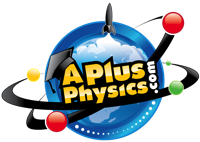I’m going to try out Skills Based Grading (SBG) next year in my Regents Physics courses. I’ve talked to lots of teachers using it, read Marzano’s “Formative Assessment and Standards-Based Grading: Classroom Strategies That Work,” many terrific blogs, tweets, etc., and I’m convinced that providing students quick and detailed feedback on exactly how they’re doing with respect to course standards will benefit us all.
many terrific blogs, tweets, etc., and I’m convinced that providing students quick and detailed feedback on exactly how they’re doing with respect to course standards will benefit us all.
But I’m also worried. Worried about the hiccups, the unknowns, the corners I may drive myself into. Worried about tracking, about keeping up, about consistency. And I’m worried about my ability to provide and record all the detailed feedback necessary.
Without a doubt I’ve been one of the hardest-working teachers in the building… I’m usually in my room by 6:30 a.m., most afternoons I don’t leave until 4:30 or 5 p.m., one night a week I often spend working until 8 to 10 p.m., and I come in for half a day or so on weekends fairly regularly.
 I enjoy what I do, and I don’t mind the time commitment. But I don’t want it to increase, especially with a family at home that I adore (and my daughter now believes watching baseball with Daddy is more fun than Mickey Mouse Clubhouse!!!). So I can’t allow SBG to take any more time from me during the school year. But how do I provide 100+ students with detailed, by-skill feedback on the larger standardized-type assessments, with multiple reassessment opportunities? (Yes, I know about the standardized assessments, but here in NY emphasis is being heightened on standardized testing, including up to 40% of a teacher’s performance evaluation).
I enjoy what I do, and I don’t mind the time commitment. But I don’t want it to increase, especially with a family at home that I adore (and my daughter now believes watching baseball with Daddy is more fun than Mickey Mouse Clubhouse!!!). So I can’t allow SBG to take any more time from me during the school year. But how do I provide 100+ students with detailed, by-skill feedback on the larger standardized-type assessments, with multiple reassessment opportunities? (Yes, I know about the standardized assessments, but here in NY emphasis is being heightened on standardized testing, including up to 40% of a teacher’s performance evaluation).
I spent several months researching this problem, with potential solutions ranging from a multitude of “punch-out”-type answer keys for individual assessments, all the way to having students do multiple self-assessments and exam breakdowns. Of course, the personalized assessments that pervade the SBG mentality still apply, but for larger standardized assessments, including mid-terms and end-of-year practice exams and final exams, spending day after day grading the same exam across multiple skills just doesn’t make sense.
Finally, with the help of some terrific support folks at Gravic, I decided to try out Gravic Remark OMR.![]() Remark OMR is a software package that allows you to scan multiple choice bubble sheets in a standard sheet-fed scanner, and evaluate them against an answer key which can break down questions into individual skill scores. Further, with multiple exams and versions of exams, you can bar code the exam answer sheets against the answer key to help prevent mis-scoring.
Remark OMR is a software package that allows you to scan multiple choice bubble sheets in a standard sheet-fed scanner, and evaluate them against an answer key which can break down questions into individual skill scores. Further, with multiple exams and versions of exams, you can bar code the exam answer sheets against the answer key to help prevent mis-scoring.
The software package comes with a built-in analysis package which makes breaking down scores by class, individual skills, demographics, or any other student input quick and easy.
Setup of answer keys is fairly straightforward — you can make your answer keys in Word or any PDF creation system, and print them out on a standard copier.
The downside – Remark OMR is expensive. A single-use installation license runs $995, and support is free for only 30 days. Getting up and running with the software takes a little bit of tinkering, but within a few days you can be creating exams, scoring keys, and grading 50+ MC question sets across 100 students in 10-15 minutes.
I wouldn’t recommend it for all courses, but in a course where standardized testing is emphasized, and you want to provide many students detailed score breakdowns on a repeated basis across many multi-skill assessments, Remark OMR has terrific potential. I used it as part of our Regents Exam review process this year… we gave the students old Regents Exams, and scored them using Remark OMR, providing each student detailed feedback on areas of strength and weakness. Then, students developed an individualized action plan to work on their greatest opportunities of improvement independently using each other, review books, course notes, and the APlusPhysics physics tutorials before sitting down for a reassessment.
This process was repeated several times, and student feedback has been tremendous – they love how their review work is tied directly to their performance, they appreciate being able to track their improvement as we get ready for their culminating exam, and they particularly love the immediate feedback facilitated by the quick scanning and scoring process.


Pingback: Physics In Flux » Regents Physics #SBG Objectives 2011-2012 #sbar #physicsed
Pingback: Physics In Flux » SBG Reflections 3/4 Through the School Year #physicsed #SBG #flipclass